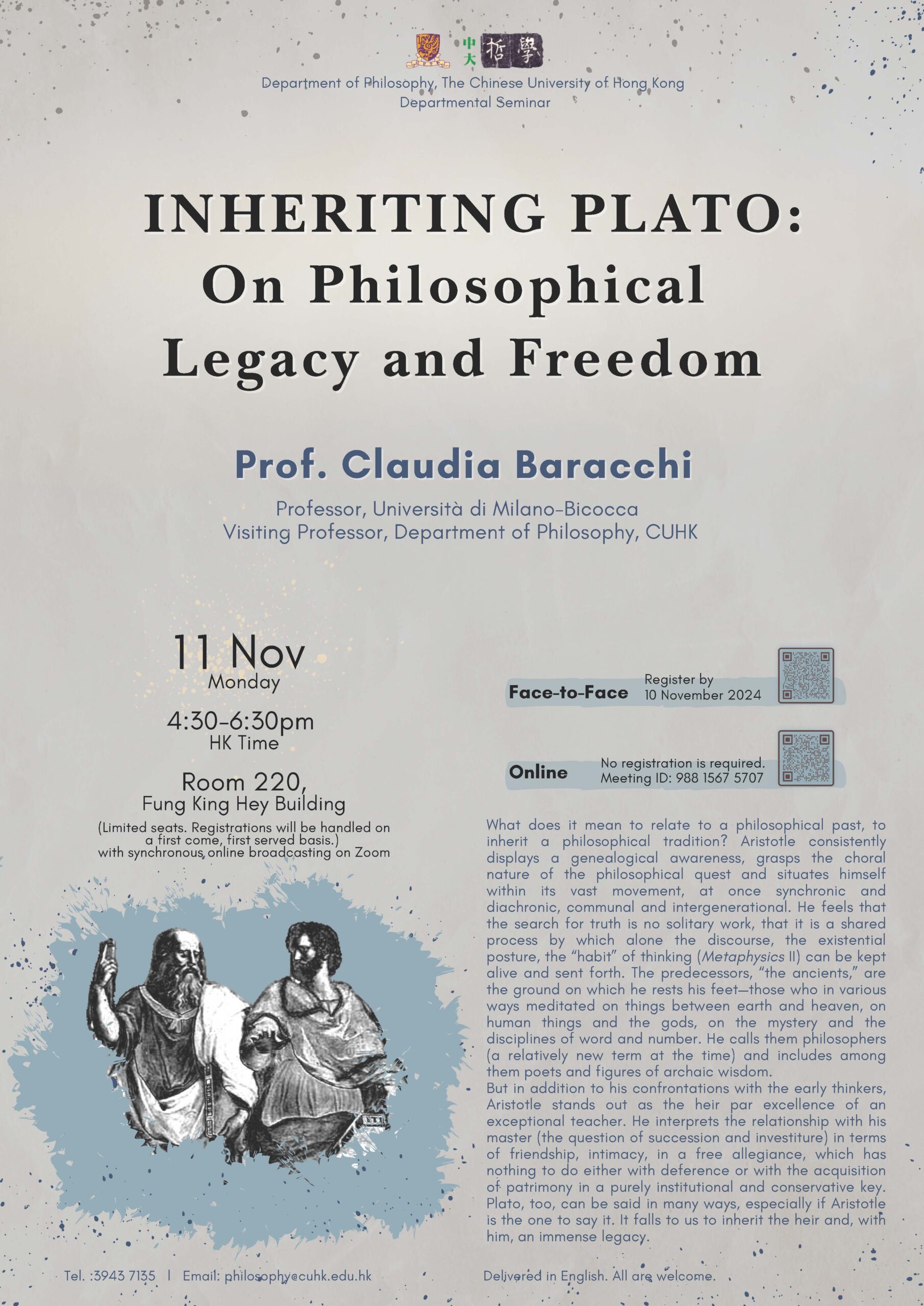Inheriting Plato: On Philosophical Legacy and Freedom (Departmental Seminar)

Prof. Claudia Baracchi |
|
4:30pm-6:30pm HK Time |
|
Room 220, Fung King Hey Building with synchronous online broadcasting on Zoom |
Joining the Seminar face-to-face:
Limited seats for face-to-face seminar. Registrations will be handled on a first come, first served basis.
Register by 10 November 2024: https://cloud.itsc.cuhk.edu.hk/webform/view.php?id=13698763
Joining the Seminar online:
No registration is required.
Link: https://cuhk.zoom.us/j/98815675707
Meeting ID: 988 1567 5707
Enquiries:
Tel: 3943 7135
Email: philosophy@cuhk.edu.hk
Abstract:
What does it mean to relate to a philosophical past, to inherit a philosophical tradition? Aristotle consistently displays a genealogical awareness, grasps the choral nature of the philosophical quest and situates himself within its vast movement, at once synchronic and diachronic, communal and intergenerational. He feels that the search for truth is no solitary work, that it is a shared process by which alone the discourse, the existential posture, the “habit” of thinking (Metaphysics II) can be kept alive and sent forth. The predecessors, “the ancients,” are the ground on which he rests his feet—those who in various ways meditated on things between earth and heaven, on human things and the gods, on the mystery and the disciplines of word and number. He calls them philosophers (a relatively new term at the time) and includes among them poets and figures of archaic wisdom.
But in addition to his confrontations with the early thinkers, Aristotle stands out as the heir par excellence of an exceptional teacher. He interprets the relationship with his master (the question of succession and investiture) in terms of friendship, intimacy, in a free allegiance, which has nothing to do either with deference or with the acquisition of patrimony in a purely institutional and conservative key. Plato, too, can be said in many ways, especially if Aristotle is the one to say it. It falls to us to inherit the heir and, with him, an immense legacy.
Delivered in English.
All are welcome.




